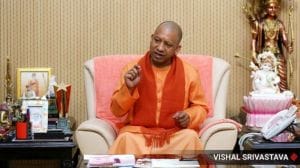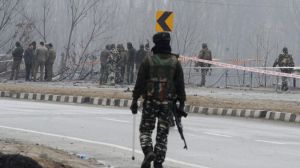Indians in UN recall Iraqi pride
As the price of mineral water shot up on March 20, Maj Rupinder Singh of Gorkha Regiment, stationed in Baghdad, knew that war was at hand. ...

As the price of mineral water shot up on March 20, Maj Rupinder Singh of Gorkha Regiment, stationed in Baghdad, knew that war was at hand. Singh part of an eight-member Indian delegation serving with the United Nations Observers Mission in Iraq and Kuwait (UNIKOM) which monitors the De-Militarised Zone (DMZ) between Iraq and Kuwait ever since the first Gulf War ended a decade ago.
Outside Singh’s apartment in Baghdad, the passport office witnessed hectic activity. ‘‘Parents were lining up trying to send their children abroad,’’ says Singh, who took a circuitous route via Bangladesh back home as the UNIKOM folded up a few days before the coalition forces rolled in.
With a single railway connection with Turkey and flights banned, most of the children would travel by road, on their way to safer homes in Syria, Jordan and Turkey. ‘‘But it was the price of a bottle of mineral water which was the biggest indicator of a war just around the corner,’’ says Singh.
The Iraqis, having lived through several wars, would start storing essentials like food, medicines, generators, candles and water. ‘‘In less than 10 days, a bottle which would be available for Rs 15 shot up to Rs 150,’’ remembers Singh.
A week ago, in Umm Qasr, Maj Sanjay Malik of the Engineers was in the midst of another evacuation drill. ‘‘But this time it was for real. We had been practising it for three months but on March 17 the orders came to fold up the mission,’’ Malik says. Today Malik remembers a fierce Iraqi pride that seemed to be waiting for the war. ‘‘They don’t show their political affiliations easily,’’ he says, ‘‘because the last time the Shia population in Southern Iraq made a noise about American troops coming in, they were penalised by the government.’’ But this time there was a fierce Iraqi pride at play, waiting for the ‘‘invasion’’.
Three government-controlled TV channels — the UN observers jokingly called them Saddam 1, Saddam 2 and Saddam 3 — offered little with even Arab channels like Al Jazeera banned in Iraq. Three newspapers, including an English daily ,were all that Singh and Malik had for information .
On the Iraqi side of the DMZ, Maj H.S.Dodhi watched American and British troops set up camp. An armoured officer himself, Dodhi watched the tanks line up barely outside the DMZ. Back in Baghdad, Singh visited the lone Gurudwara in Baghdad for the last time. ‘‘It has been maintained by two Iraqi families for generations and Guru Nanak was here once,’’ Singh says.
Both Singh and Dodhi discovered how revered the turbans they wore were in the region. ‘‘People would greet us with warmth, our turbans serving as our nationality badge.’’ All three agree that Iraqis had a special place for all Indian officers who served there.
As the orders to suspend the UN mission came through, Singh took the long road to Basra and beyond, using the same highway used by the coalition forces. Attached to a Bangladesh Battalion, all seven officers flew to Bangladesh before reaching New Delhi.
Photos





- 01
- 02
- 03
- 04
- 05


























